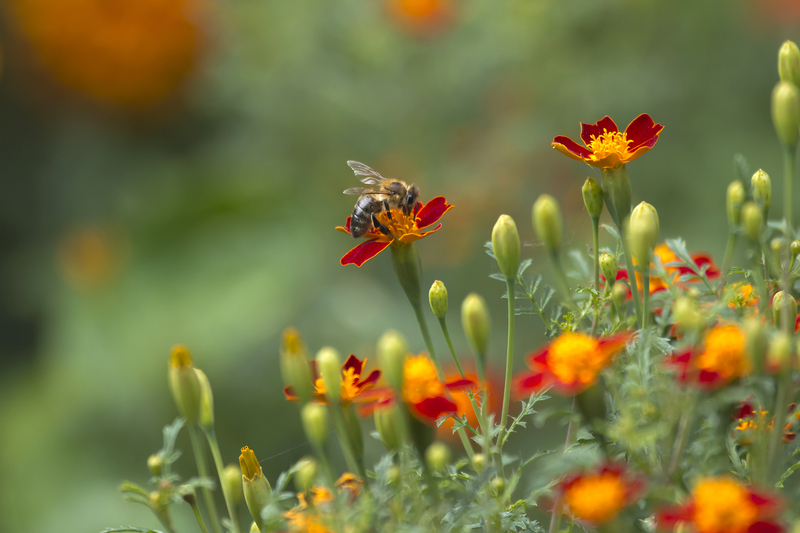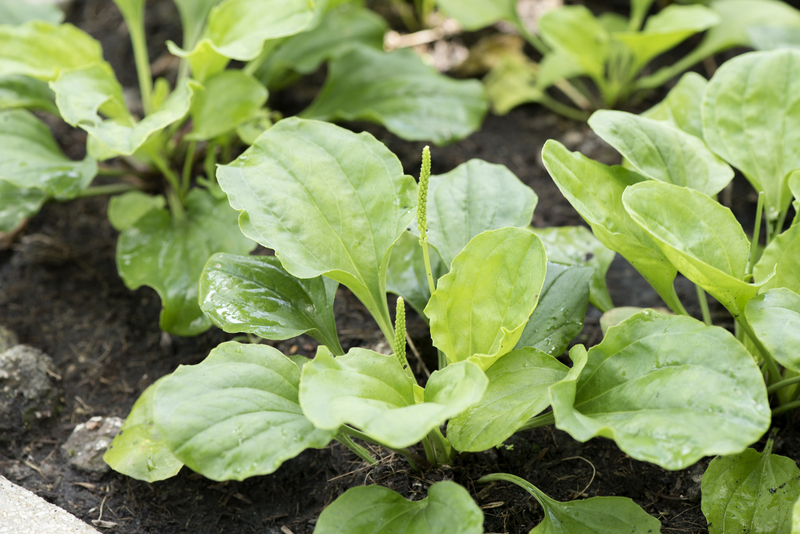Kickstart Your Green Journey: 9 Key Gardening Tips for Newbies
Posted on 26/08/2025
Kickstart Your Green Journey: 9 Key Gardening Tips for Newbies
Are you ready to transform your home or backyard into a lush, green haven? Starting your gardening journey can seem daunting, but with the right guidance, even beginners can cultivate thriving, beautiful plants. In this comprehensive guide, we'll share 9 essential gardening tips for newbies that will ensure your seeds of enthusiasm blossom into a thriving paradise.
Why Start Gardening as a Beginner?
Gardening isn't just about making your surroundings look attractive. It offers immense benefits for your mental health, supplies fresh produce, and creates a peaceful sanctuary just outside your door. Whether you have a sprawling yard or a small apartment balcony, starting your own green journey can be deeply rewarding and sustainable.

1. Know Your Space and Sunlight
Understanding your garden's environment is crucial for beginners. Before you start planting, observe your outdoor area throughout the day. How many hours of sunlight does it get? Most vegetables and flowering plants need at least 6 hours of sunlight daily. Assess whether your chosen spot is in full sun, partial shade, or mostly shaded.
- Full sun (6+ hours of direct sun) is ideal for tomatoes, peppers, sunflowers, and most herbs.
- Partial shade (3-6 hours of sun) suits leafy greens like lettuce, spinach, and some root vegetables.
- Shade tolerant plants such as ferns and hostas can thrive with less sunlight.
*Tip: If you have minimal sunlight, consider plants that adapt well indoors or with supplemental grow lights.
2. Select the Right Plants for Beginners
Not all plants are created equal, especially for those new to gardening. Choose hardy, low-maintenance varieties that are resilient to common mistakes like overwatering or occasional neglect. Some ideal starter plants include:
- Herbs: Basil, parsley, mint, and chives.
- Vegetables: Radishes, lettuce, beans, and zucchini.
- Flowers: Marigolds, petunias, nasturtiums, and sunflowers.
*Check your local climate zone (often called a USDA Hardiness Zone) to find plants best suited for your region and season.
3. Invest in Good Soil and Compost
Healthy plants start with healthy soil. Invest some time and effort into preparing quality soil for your garden. Enrich your soil with organic compost or buy nutrient-rich potting mixes if you're gardening in containers.
- Test your soil's pH and texture using inexpensive kits from garden stores.
- Compost kitchen scraps and yard waste to create your own organic fertilizer.
- Add mulch to retain moisture and suppress weeds.
Remember: Good soil helps your plants develop strong root systems, resist diseases, and grow vigorously.
4. Master the Art of Watering
Watering may seem simple, but many newbie gardeners either overwater or underwater their plants. Finding the right balance is essential for plant health.
- Water deeply and less frequently, allowing the soil to dry slightly between watering sessions.
- Morning is the best time to water, reducing evaporation and preventing diseases.
- Use a watering can with a gentle shower for seedlings; upgrade to hoses or drip irrigation for larger gardens.
- Keep soil moist but not soggy--roots need oxygen as much as moisture!
*Tip: Place your finger about an inch into the soil. If it feels dry, it's time to water.
5. Understand Plant Spacing and Layout
Plants, like people, need their personal space! Proper plant spacing ensures good airflow, reduces disease risk, and enables roots to develop fully. Crowded plants may compete for light and nutrients, leading to stunted growth and poor yields.
- Read seed packets and plant labels for recommended spacing instructions.
- Use garden beds, raised beds, or containers to organize your layout efficiently.
- Incorporate companion planting (e.g., tomatoes with basil, carrots with onions) to maximize yields and reduce pests.
*Mapping your garden on paper before planting can help you optimize every inch of space.
6. Start Small and Expand Gradually
It's easy to get overexcited and plant too much too soon. For newbie gardeners, starting small is key to success. Begin with a manageable area--like a few pots or a single raised bed--until you gain confidence and experience.
- Track what works and what doesn't in a gardening journal.
- As you build skills, gradually expand your garden with new plants and techniques.
- Join local gardening groups or online forums to learn from experienced greens thumbs.
Remember: A small, thriving garden is more rewarding (and less overwhelming) than a large, struggling one.
7. Keep an Eye on Pests and Diseases
Pest and disease issues can be the bane of any new gardener's journey. Early detection is your best defense. Inspect your plants frequently for signs of trouble: yellowing leaves, holes, or sticky residue.
- Promote biodiversity by planting a mix of flowers and vegetables. Beneficial insects like ladybugs and bees help keep pests in check.
- Hand-pick pests such as caterpillars or aphids, and use natural remedies like neem oil.
- Remove diseased plants promptly to prevent the spread of pathogens.
*Opt for organic pest control methods first. Avoid broad-spectrum pesticides, which can harm pollinators and earthworms.
8. Practice Regular Maintenance
Gardening isn't a "set-and-forget" hobby. Regular upkeep helps your green space flourish.
- Weed often: Weeds compete with your plants for nutrients and space. Regular weeding keeps them under control.
- Prune and deadhead: Remove dead or damaged leaves and spent flowers to promote healthy growth.
- Feed your plants: Apply organic fertilizers or compost during the growing season for optimum production.
*Creating a simple weekly checklist can streamline your gardening routine and ensure nothing gets overlooked.
9. Have Patience and Enjoy the Process
The most important gardening tip for beginners is to be patient! Plants take time to establish and flourish. You'll encounter ups and downs, but each season will teach you something new. Celebrate your progress--no matter how small--and don't be discouraged by setbacks.
- Take photos to track your garden's growth.
- Share your journey on social media or with fellow gardeners.
- Enjoy the time spent outdoors nurturing life--it's a joy in itself!
Bonus: Essential Tools for Every Beginner Gardener
Having the right tools can make your gardening adventure smoother and more efficient. Here's a quick list of essentials:
- Hand trowel - For digging small holes and transplanting seedlings.
- Pruning shears - For trimming dead branches and flowers.
- Watering can or hose - Choose one that suits your garden size.
- Gloves - To protect your hands from thorns and soil-borne pathogens.
- Soil knife or garden fork - For breaking up soil and removing weeds.
- Garden kneeler or pad - For comfort during long weeding or planting sessions.

Common Mistakes New Gardeners Can Avoid
- Planting too early or late in the season. Always check local frost dates and seasonal guidelines.
- Forgetting to label plants. Keep everything organized with garden markers.
- Ignoring garden journal entries. Record your experience for continual improvement.
- Using non-organic chemical fertilizers or pesticides without understanding their impact.
- Neglecting regular checks for weeds, pests, and diseases.
Practice makes perfect. These simple precautions can help ensure your green journey gets off to a brilliant start!
Conclusion: Embrace Your Green Thumb!
As you embark on your gardening journey, remember that every master gardener was once a beginner. Building a garden takes time, patience, and a willingness to learn. With these 9 key gardening tips for newbies, you'll lay strong roots for a flourishing, sustainable, and beautiful green space.
Whether your ambitions are as small as a windowsill herb garden or as grand as a backyard vegetable patch, the world of gardening welcomes everyone. So grab your trowel, embrace the dirt under your fingernails, and get ready for a season of growth, discovery, and endless natural beauty!
Ready to kickstart your green journey? Start with these basics, learn from each step, and watch as your new passion blossoms. Happy gardening!
```
